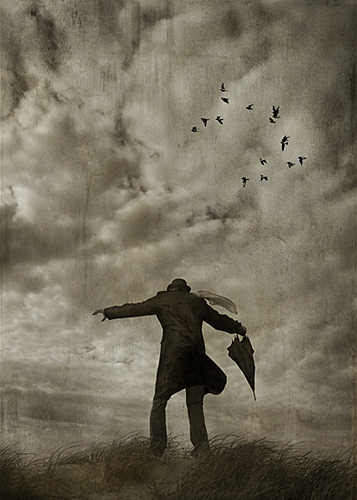Brother Frothingham's Advent sermon, "Trials No Strange Thing" continued...
" Think it not strange," so run the words of the Apostle, " concerning the fiery trial that is to try you." You there read what is the design in view. It is to prove, and not to destroy, you. The very name expresses the object . Peter was speaking of the fire of persecution. He was warning his converts of the day when that should kindle upon them; banishing them from the comforts of their dwellings, and threatening to surround with literal flames the heads that were to be devoted to martyrdom for the Redeemer's sake. For us the fire is but a figure of speech. That persecution has spent itself long ago. But the figure has still an import, not less real, though not the same that it was ; and the existence of every one, whether he witnesses any good confession or not, is driven and distressed by some of the various ills that are abroad. A man is more likely to suffer for his transgression than for the truth ; but suffer he must . And that for no fault, often. It was assigned to him. And it is best so. At least he can make it to be best. When it burns against him to his greatest earthly loss, and as intensely as he can endure it, he is permitted to believe that it is no breaking out of a violent accident; that it is sent by the same Supreme Power who has set his glory in the heat of the sun, and who will make opposite things praise him equally. He is called upon, also, to assist by the exercises of his own will and heart the intentions of Providence; that its admonitions may not be lost upon him ; that its chastening may not have been inflicted in vain. It is not for him to choose in what manner his trial shall come. If it were, it would hardly be a trial. He would hesitate long, and choose the easiest, consulting his temperament, and making reserves against every thing that he should be most reluctant to undergo. He can only choose in what manner it shall be met ; whether with patience and constancy, or not; whether with the Christian endeavor to derive some moral advantage from it, or else with no care of such a sort; whether with tenderness or obstinacy; whether holding his integrity fast, or letting that go with the wreck of meaner things; whether trustfully, and committing all to the good pleasure of the Lord, or sullenly, and casting all as to the disposal of fate. Your character is to be put to its sharp tests; and how will it abide them ? You are tempted by pleasures and prosperity, to see if you are weak enough to be seduced. You are searched by hurts and deprivations, to see if you are strong enough to endure. That more cheerful experiment may fail, and instead of inspiring thankfulness and exciting to good works and encouraging sound principles, it may give empire to idleness and pride and every sensual passion. And if it does, the failure will be lamentable, though you will still have had your pastime; you can count up the shining bribes that corrupted you; you can show that you had gained something for what you surrendered; that the account was not wholly against you, if wretchedly uneven, of the world's good won and the soul ruined. The darker experiment may fail also ; breaking you down instead of bracing you up; making you but all the worse,— harder where it should have penetrated you, and wilder where it should have brought you under subjection ; and revealing that there is no true force in you. But if it does this, it will not leave you even the poor comfort that was allowed to the other case. There is nothing that you can mention as an offset to the unbalanced misery. You have not even a faded delight to hold up to us, and tell us how fresh it once was with the dews of its youth and the glow of its beauty, making us think that it would be almost worth any thing less than the boundless sacrifice it cost. Here it is all unhappy, both the method and the effect. You suffered in what was sent, and you suffer more in your perversion of it. It was bitter to take, and has only increased your malady."
Blessings


